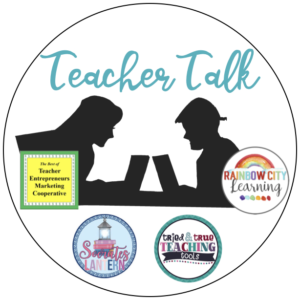In spite of what most students (including my granddaughters) think, certain very common study practices are not very effective. These include most highlighting/and underlining, rereading, and cramming.
Another surprise—summarizing, mental imagery, mnemonics, and asking “Why?” during reading—are not very productive, either.
The best study practices that produce the best test results are self-tests and teacher-practice tests, flash/concept cards, and distributed practice sessions.
See my previous post:
So Your Kids Don’t Like Pop Quizzes? Too Bad!
Most teachers don’t spend time teaching students how to study.
Perhaps they think they have too much content material to cover. Or perhaps they think someone else already taught good study practices. Or perhaps they have already made study guides that are easier to reuse yearly. Or perhaps the textbook gives a false sense of how to use it effectively for productive learning. Or perhaps they are simply teaching the way they were taught (very common).
Actually, teaching effective study practices for long-term development is more important than teaching the content of a subject, which will be mostly forgotten eventually.
Let’s analyze why the three “goodies” might be the most effective study practices.
Self-tests and teacher-practice tests (not multiple choice!) require thoughtful recollection and scrutiny about what is important and how it relates to other information. They also boost long-term memory and the strategic process of learning a concept. At the end of each lesson, a little oral test from the teacher about the important concepts just learned is extremely helpful. If you, like I, usually find myself teaching until the bell rings, it is sometimes useful to do this “test” at the beginning of the next class. This is also a good time to make those note/flash cards. In fact, this moment is especially effective because it also incorporates the third effective study habit: distributed practice.
Teachers can guide their students in taking notes in the flashcard format, with the key concept, fact, or definition on the front, and the answer on the back. (No, you don’t need notecards if you can’t afford them—just cut copy paper into sixths. A clean sandwich bag can hold all of them.) Students can use these “flash cards” to check themselves. The cards provide immediate feedback on what still needs to be learned better. When correct, the student can decide if the card can be pulled from the set. This process in using flashcards promotes student mindfulness in the learning experience, too.
The benefits of distributed practice for long-term learning have been researched for over 100 years, with consistently the same unsurpassed results. Distributed practice does not have to take even one more minute than massed practice (cramming), but procrastinators will never agree. Ask yourself which would be a better way to prepare for a piano or a dance recital—producing the performance once a day for five days or doing it five times the night before. It is clearly applicable to all tests, including spelling tests.
For more complete information about effective and ineffective study practices, check out the article* at the end of this post from which I gleaned much of this information.
Reading Spotlight also has a useful FREE
A review of this post:
The Good:
- Practice Tests
- Flash Cards (including concept cards with explanations on back for self-checking)
- Distributed Practice Sessions
The Bad (or Not Too Good)
- Summarizing
- Mental Imagery
- Asking “Why?” during reading
- Using mnemonics
The Ugly:
- Highlighting
- Underlining
- Rereading
- Cramming
Students who get good grades on tests are happier, and happy students learn best.
It is such a joy to help your students become happier learners and successful test-takers.
© Reading Spotlight 2022
Here are some other interesting posts about education from my friends at TBOTEMC:



